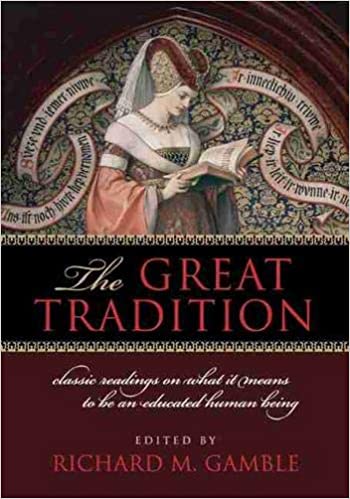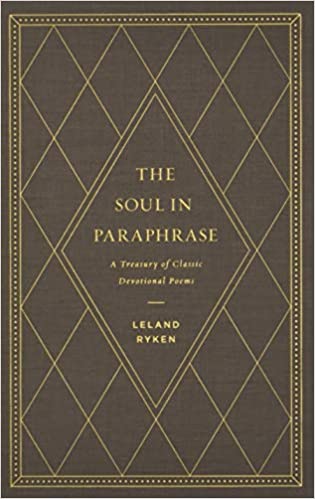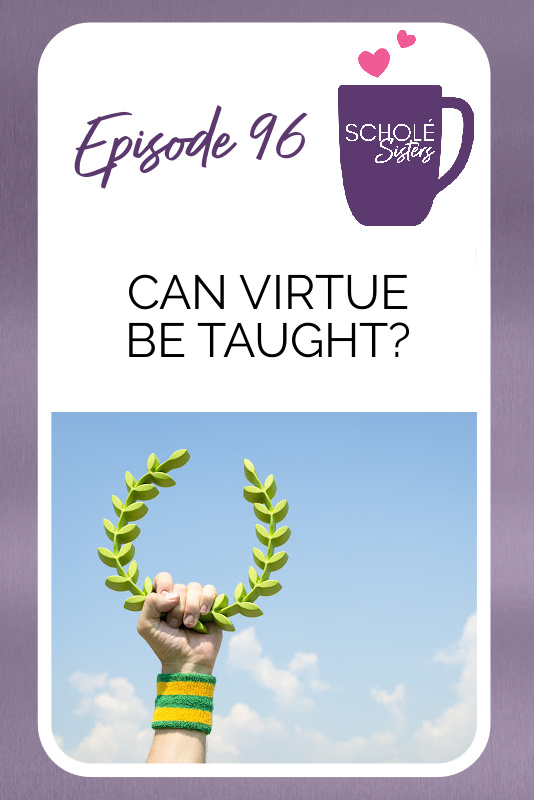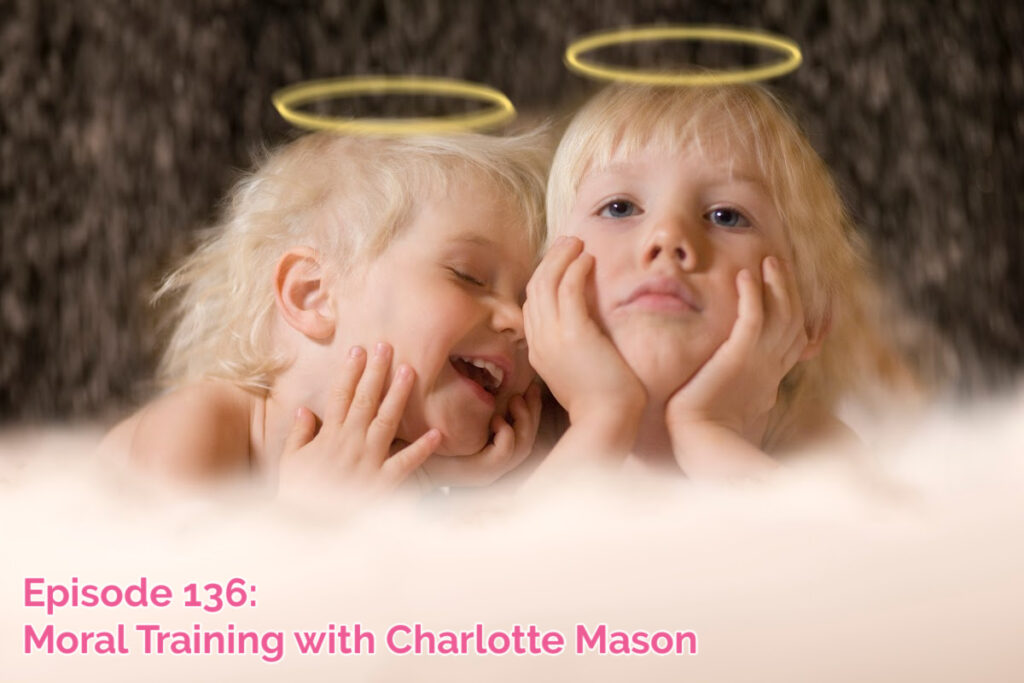SS #96: Can Virtue Be Taught?
Yes, you can teach virtue.
However, that doesn’t mean education can make people into Christians.
We must distinguish between training in good habits and a changed heart.
Only God changes hearts, but he ordains discipleship (education) to train in the way people should go. Education does not save, so it will not make one morally righteous before God – but our works never do that.
Education does direct paths and shape affections and desires, which is important for humans. You can teach virtue, but our virtue doesn’t save us.
Even after being saved, we require education to know how to live as we ought.
Even for those who are not saved, a person can be taught paths of goodness because of common grace.
He can’t do good works that please God, but he can do good works that improve his life and society because they’re in accord with truth, goodness, and beauty.
Listen to the podcast:
TUNE IN:
Apple Podcasts | Spotify | Stitcher
Virtue is the aim of classical education
Today’s Hosts and Source

Brandy Vencel
quotes Thayer’s Greek Lexicon and homeschools the three of her kids left at home.

Pam Barnhill
quotes Aquinas and homeschools her three big kids.

Mystie Winckler
quotes Aristotle and homeschools three kids while the older two do college work.

Abby Wahl
quotes Horace and homeschools her five kids between wrangling sheep.
For this episode we’re drawing from the sections of Aristotle (p. 56), Quintilian (p. 122), and Augustine (p. 222) in The Great Tradition.
Scholé Every Day: What We’re Reading
Sense and Sensibility, Jane Austen
Abby is rereading some Austen in her newly-christened Brit Lit Chicks category.
Pilgrim Theology, Michael Horton
Mystie was hooked as soon as Horton revealed his alliterative structured in the introduction.
The Soul in Paraphrase, edited Leland Ryken
Let it be known that Pam started this book before everyone else started talking about it.
The Shepherd’s Castle, George Macdonald
The Vencel family habit of reading aloud is saving Brandy’s reading time right now.
What is virtue?
The American Heritage Dictionary defines virtue as “Moral excellence and righteousness; goodness. An example or kind of moral excellence: the virtue of patience.”
Aquinas calls virtue an operative habit that is essentially good as opposed to vice, which is an operative habit of evil.
2 Peter 1 uses the word arete, virtue. Thayer’s Greek Lexicon says that arete is a very broad word meaning excellence in quality. 2 Peter distinguishes between virtue and godliness – does this indicate that there is a distinction between goodness and godliness?
If virtue is righteousness that pleases God, it can only come from God and we can’t teach it. But if it simply means a common-grace kind of virtue where we see and align ourselves with natural law, then it is attainable by the unregenerate as well as the believer.
In 2 Peter, also, virtue is listed next to knowledge, which no one denies can be taught.
There are different kinds of virtues: theological, those which must come from God; cardinal, which we can see in natural law and can attain through habit and teaching; and intellectual
Virtues aren’t automatic.
We do try to teach our children to walk in ways of virtue by teaching them good habits. But those good habits aren’t an indelible program that will automatically result in a certain outcome when our kids are adults.
However, establishing habits in our home fix a norm. It makes certain ways of life – good or bad – easier to choose because they’re normal.
Virtue is never theoretical, even though it can’t be measured. It is always practiced. If it isn’t practiced, it isn’t possessed.
Is virtue always a habit?
A habit is an action that is chosen over and over again.
Aristotle says children can be brought up with certain habits, but unless a child also himself chooses those actions they aren’t truly habits. Habits are continually chosen paths.
But our thoughts also direct our choices, so the heart and mind and not only the body are involved in teaching virtue.
Virtue requires grace
We don’t want to teach our children that they have the sole duty to act virtuously in their own strength. We also want to teach our children to rely on grace.
Even any virtue that an unbeliever lives out is due to common grace. The source of all virtue is always God.
Some of the places we struggle with virtue is that because we don’t know how to reconcile our responsibility and teaching with God’s grace.
One part of training our children in virtue is teaching our children the habit of prayer and reliance on God’s grace.
Virtue isn’t behavioralism
Part of education is giving our children categories for virtues like justice and temperance and courage because they cannot choose a path they’ve never recognized.
Romans 10:13-15 reminds us that teaching is required for evangelism and sanctification. God uses means. He uses us to direct our children into paths of virtue.
We get muddled in virtue when we go hunting for those formulas that, if we follow, we get guaranteed outcomes in other people’s lives.
Sometimes habit training can be done in a behavioralism attitude. But even Charlotte Mason wanted the mind and will engaged with the habit so it’s owned by the child and not just a mechanical repetition that becomes engrained without thought.
We can’t neglect to help our children’s understanding of their choices so they can come on board themselves. They engage with their own will.
Behavioralism is materialist. It ignores the spiritual side of the world and people. There is no soul. Real virtue teaching is always about touching and directing the soul, not just the body. It is discipleship.
It’s never too late for virtue
Teaching virtue isn’t a phase that we have to take advantage of when kids are young.
As adults, we still need training in virtue. So even if we’ve come to these ideas later with our children, we just start where we are and take the next step in virtue.
Walking in ways of virtue never ends. There is no end game where you’ve arrived. So teens are not lost causes and neither are we.
Mentioned in the Episode
Listen to related episodes:
SS#164: Teaching Courage
SS#161 – Feminism Detox
SS #153: Vainglory (you probably think this episode is about you)
SS #136 – Moral Training, Moral Habits

Want to talk about the ideas presented here? The conversation is happening inside Sistership.













